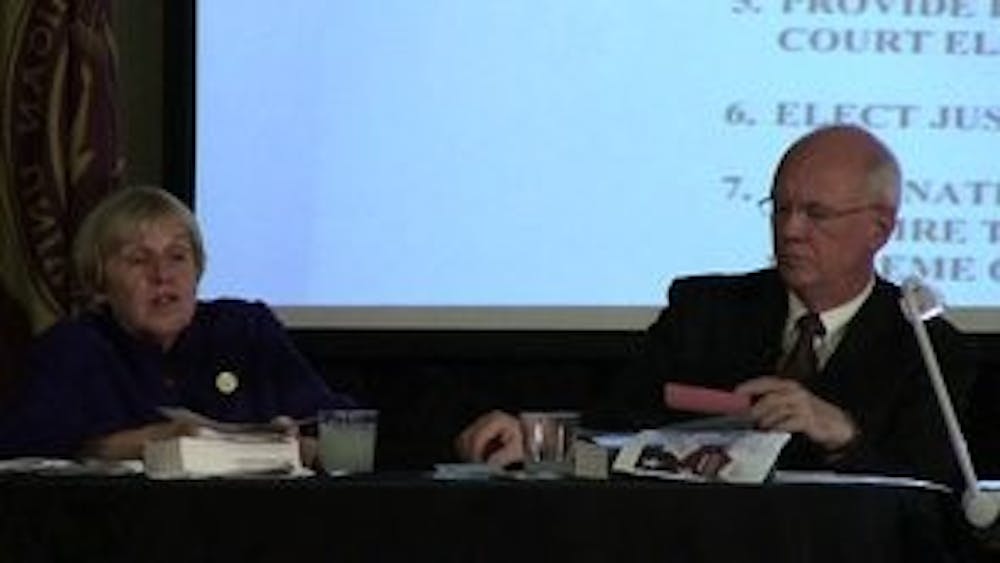Former Michigan Supreme Court justice speaks on new book
https://vimeo.com/77559544
Former state Supreme Court Chief Justice Elizabeth Weaver called for increased transparency in the Michigan court system at a discussion panel Monday in the Powers Hall Ballroom.
Weaver is the co-author of "Judicial Deceit: Tyranny and Unnecessary Secrecy at the Michigan Supreme Court." The book reveals many secrets about the Michigan Supreme Court, including accounts of conversations between justices in deliberation.
"Students need to learn because it is something that will affect them the rest of their lives," Weaver said. "They should know whether they are getting a fair shake or not."
During the conversation, moderated by Central Michigan University political science professor James Hill, Weaver answered questions from students and talked about her experience on the Supreme Court.
Copies of Weaver's seven-point plan to reform the Michigan Supreme Court were passed out at the conversation. The plan calls for changing the election process for justices and dispelling the secrecy surrounding the Supreme Court's actions.
"I thought the conversation was incredibly insightful," Shepherd sophomore Pierce Daugherty said. "We're all working for the same goal and the idea that people are keeping secrets is discomforting."
Weaver was elected to the Michigan Supreme Court in 1994 and served as chief justice for two years. In 2010, she resigned several months before the end of her term amid allegations of judicial misconduct.
Weaver said the system of requiring political party nomination in Supreme Court selection gives political parties too much sway over the courts and allows them to further their own agendas.
She advocated putting more restrictions on who the governor can appoint to the Supreme Court and instituting a new term limit of 14 years for all justices to increase rotation.
"I agree with her that getting to really understanding how justices are elected and how that affects their judgment is important for a functioning court," Rockford graduate Brent Buesking said.
Weaver has been rebuked by other justices who claim disclosure of information in the book violates the court's deliberative process privilege.
Weaver said she does not believed her book is unethical. She said that the information she gave to the public should be available to them after a case is closed.
"I wrote the book so people can understand what they are dealing with," Weaver said. "The goal is to have an independent judiciary, so you can have trust and confidence in it"




